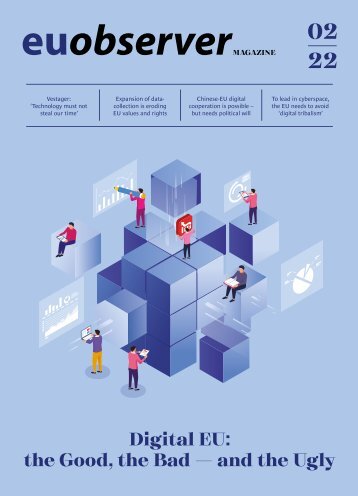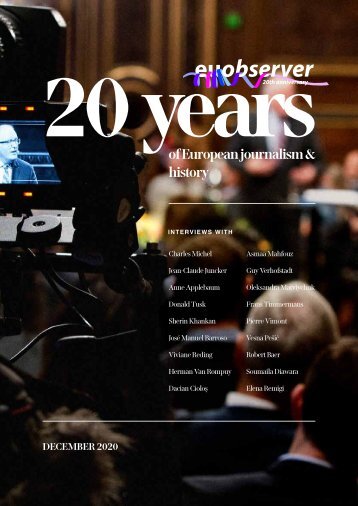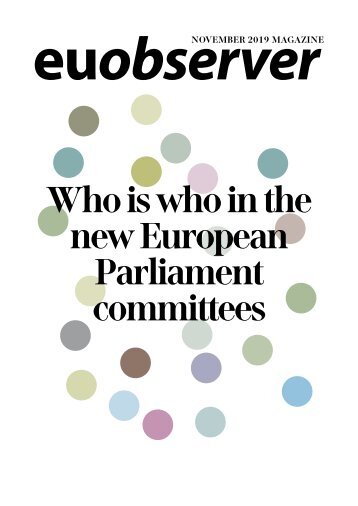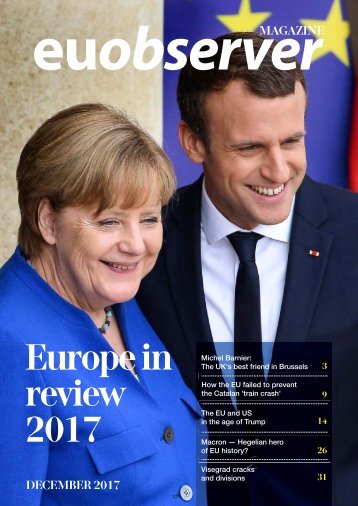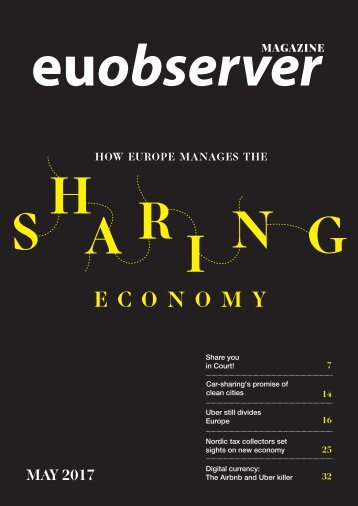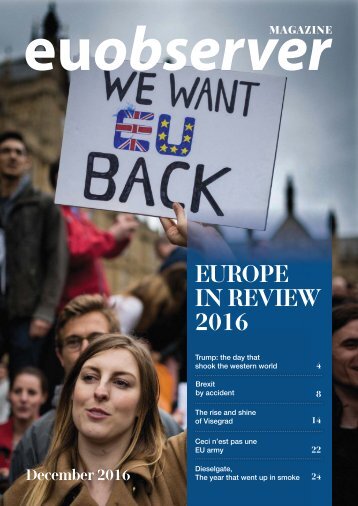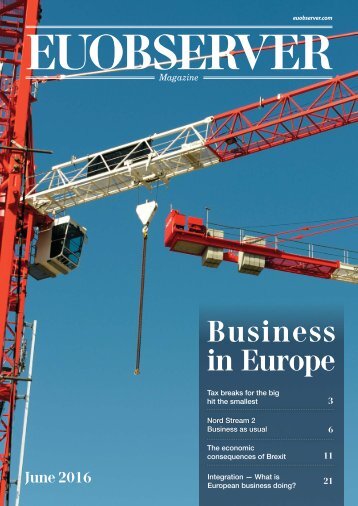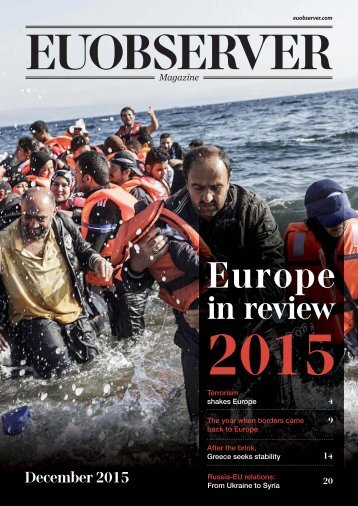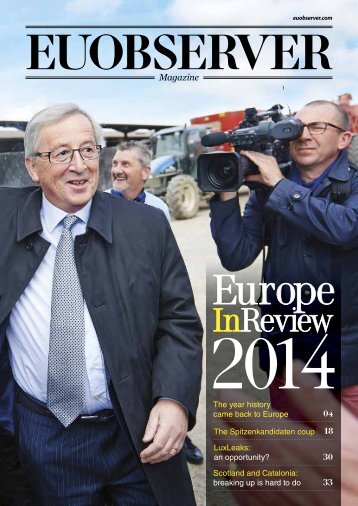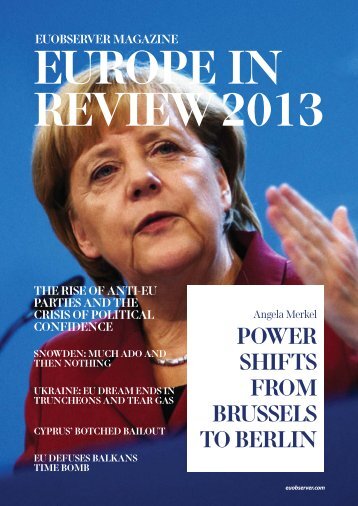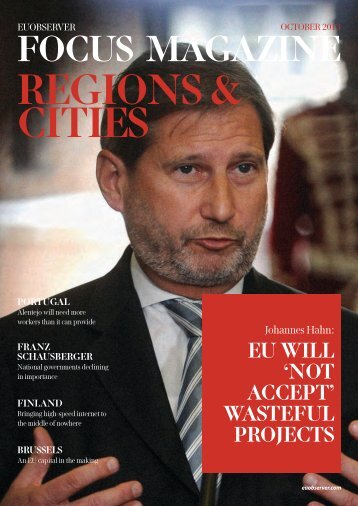Digital EU: the Good, the Bad — and the Ugly
- Text
- Strategic
- Cooperation
- Technologies
- Economy
- Innovation
- Asean
- Artificial
- Global
- European
- Digital
DIGITAL INNOVATION
DIGITAL INNOVATION ‘DIGITAL EU’: THE GOOD, THE BAD & THE UGLY Facts & Figures Europe’s push to reform the 'digital jungle' FUNDS Around 20% of the €723.8bn EU recovery funds are dedicated to digital objectives, supporting digital public services, digitalisation of businesses, connectivity or education. Source: European Commission CYBERSECURITY It is estimated that every 11 seconds there is a ransomware attack targeting an organisation across the globe — a criminal business with an estimated cost of €20bn in 2021. Overall, cybercrime had a global cost of €5.5 trillion in 2021.Cyberattacks targeting EU bodies have increased more than tenfold during the last four years. Source: European Commission Upcoming rules for online platforms, data-sharing and artificial intelligence will play a key role in the digital transformation of the EU and member states. AI INVESTMENT CHIPS By ELENA SANCHEZ NICOLAS Europe’s digital transformation has been one of the key priorities of the European Commission as new technologies are deemed critical for societal and economic progress. European policymakers have long pledged to strengthen Europe’s digital sovereignty, especially where dependencies are linked to security, but economic interdependencies remain. The overall strategy is to improve digital infrastructure and connectivity across the bloc to boost Europe’s competitiveness and green transition. As regards competitive digital markets, the EU has given special importance to the roll-out of connectivity infrastructure (including 5G) and emerging technologies (such as artificial intelligence (AI), quantum technologies and blockchain). Improving digital skills and cybersecurity has also become a priority. sation of machine-to-machine interactions still remains to be seen. In today’s data-driven economy, AI and machine learning (ML) are essential to enable the digital transformation of many industries in the bloc. Building on previous legislation such as the data-privacy rulebook, the EU wants to become a champion of setting online standards for the digital age. The new AI Act, for example, aims to shape global standards and norms for AI technologies. But there are many other key initiatives for the EU’s digital future. The EU recently adopted two landmark pieces of legislation that set legal obligations for digital platforms. And, for the first time, big tech companies will have to comply with a series of obligations which aim to ensure competitiveness, plurality and transparency. The estimated annual investment of the EU in AI is €1bn, compared to €5.1bn invested annually by the US and €6.8bn by China. The investment gap in AI and blockchain is estimated to be €10bn. The EU wants to mobilise funding to invest €20bn-per-year in AI during the next decade to reduce the investment gap between the US and China. DATA ECONOMY The value of the data economy of EU-27 was almost €325bn in 2019 (representing 2.6% of GDP) but it is expected to increase to over €550bn by 2025 (4% of GDP). SSource: European Commission 5G Just one-quarter of EU citizens can access a 5G network. 5G is expected to add up to €1 trillion to EU GDP by 2025. Source: European Court of Auditors Source: European Commission SKILLS & WORKFORCE As the digital transformation advances, worldwide demand for chips is expected to exceed trillion by 2030. Source: McKinsey & Company More than 40% of Europeans lack basic digital skills and sometimes it is difficult for companies to find the ICT talent. In 2021, about nine million people worked as ICT specialists in the EU, with the highest number in Germany and France. Source: European Commission Europe does not boast Big Tech giants like the US (Google, Facebook or Amazon) and China (Baidu, Alibaba or Xiaomi), and whether the EU will be part of the next wave of digitali- Other initiatives include new civil liability obligations, the open data directive, the e-Privacy regulation, a new consumer agenda, and rules to ensure secure cross-border transactions. Business using IoT technologies in 2021 Business using AI technologies in 2021 50% 25% 40% 20% EU’s Digital targets for 2030 5G everywhere. Double EU share in semiconductors global production 80% of citizens using digital ID. 100% of citizens having access to medical records 75% of EU firms using Cloud/AI/Big Data Grow scale-ups & increase finance to double EU unicorns 20 million ICT specialists. 80% population with basic digital skills Source: European Commission 30% 20% 10% 0% Austria Slovenia Finland Sweden Germany Ireland Cyprus Italy Czech Republic EU 27 Belgium Latvia Lithuania Malta Spain Slovakia Croatia Portugal Greece Luxembourg France Netherlands * All enterprises, excluding financial sector (10 or more employees and self-employed persons) Hungary Denmark Poland Estonia Bulgaria Romania 11 15% 10% 5% 0% Denmark Portugal Finland Luxembourg Netherlands Slovenia Germany Belgium Malta Sweden Croatia Austria EU 27 Ireland Spain France Italy Slovakia Czech Republic Greece Latvia Lithuania Bulgaria Source: Eurostat Estonia Cyprus Hungary Poland Romania
- Page 1 and 2: MAGAZINE 02 22 Vestager: ‘Technol
- Page 4: TABLE OF CONTENTS ‘DIGITAL EU’:
- Page 8: DIGITAL INNOVATION ‘DIGITAL EU’
- Page 14: DIGITAL INNOVATION As Artificial In
- Page 18: DIGITAL INNOVATION ‘DIGITAL EU’
- Page 22: DIGITAL INNOVATION ‘DIGITAL EU’
- Page 26: DIGITAL INNOVATION Stakeholder Arti
- Page 30: DIGITAL INNOVATION ‘DIGITAL EU’
- Page 34: DIGITAL INNOVATION ‘DIGITAL EU’
- Page 38: DIGITAL INNOVATION ‘DIGITAL EU’
- Page 42: DIGITAL INNOVATION ‘DIGITAL EU’
- Page 46: ‘DIGITAL EU’: THE GOOD, THE BAD
- Page 50: An A-Z glossary of digital and tech
Inappropriate
Loading...
Mail this publication
Loading...
Embed
Loading...


